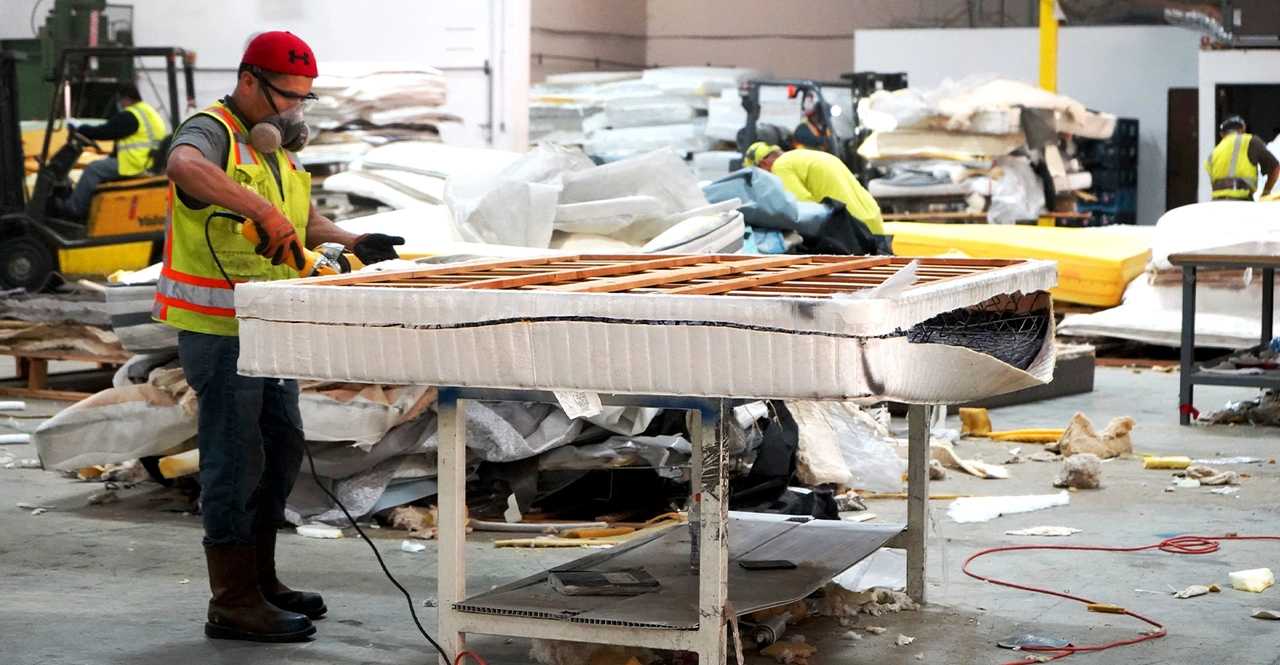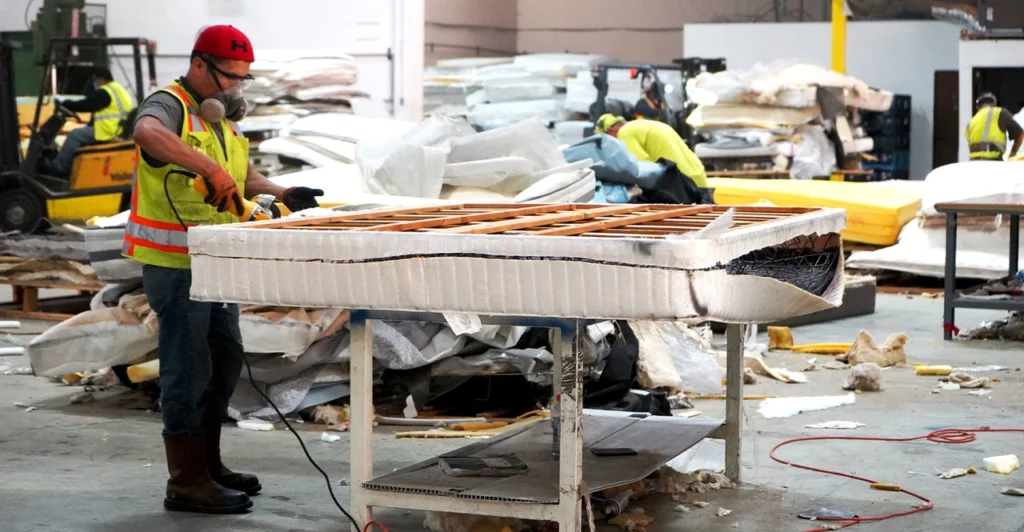Which States Have Mandatory Mattress Recycling Fees?
- Patrick Conley
- December 30, 2024

As consumers, we rarely think about what happens to our old mattresses when we replace them. However, with millions of mattresses discarded annually in the United States, their disposal poses significant environmental challenges. To address this issue, the Mattress Recycling Council (MRC) was established to create and manage mattress recycling programs in states that have enacted mattress recycling laws. These programs are funded by a small fee paid by consumers at the time of purchase, ensuring that used mattresses are responsibly recycled rather than ending up in landfills or being illegally dumped.
Currently, mandatory mattress recycling programs operate in California, Connecticut, and Rhode Island. Starting this Wednesday, January 1, 2025, Oregon will join this list, becoming the fourth state to implement such a program. This article will explain how the MRC operates, why these fees are necessary, and what they mean for consumers.
What Is The Mattress Recycling Council (MRC)?
The Mattress Recycling Council (MRC) is a nonprofit organization created by the mattress industry to develop and administer mattress recycling programs in states with relevant legislation. These programs are branded as Bye Bye Mattress for consumers, making it easier for individuals to recycle their old mattresses through accessible drop-off locations or other collection services.
The MRC’s mission is to reduce waste by recovering valuable materials from discarded mattresses. On average, up to 75% of a mattress can be recycled. Materials such as steel, foam, fibers, and wood are repurposed into products like carpet padding, insulation, and garden mulch. Since its inception in 2015, the MRC has recycled over 13 million mattresses, diverting hundreds of millions of pounds of waste from landfills.
How Does the MRC Program Work?
In the four states with mandatory mattress recycling laws, all consumers pay a recycling fee when purchasing a new mattress or box spring from a retail store or an online website, like Slumber.Solutions. These state required fees fund the cost of collecting, transporting, and recycling discarded mattresses. The program also supports public education initiatives to raise awareness about proper mattress disposal.
The fees vary by state:
• In California: $16 per unit
• In Connecticut: $16 per unit
• In Rhode Island: $20.50 per unit
• In Oregon (starting January 1, 2025): $22.50 per unit
These fees are displayed as a separate line item on sales receipts to ensure transparency.
Which States Participate with Mandatory Mattress Recycling Fees?
California
California launched its mattress recycling program in December 2015. With over 240 permanent collection sites and frequent community events, nearly all Californians live within 15 miles of a drop-off location. The program also offers curbside pickup through municipal waste services and retailer take-back options when delivering new mattresses.
Connecticut
Connecticut was the first state to enact a mattress recycling law in 2013, with its program officially starting in May 2015. The state provides free drop-off locations and partners with solid waste facilities to ensure convenient access for residents.
Rhode Island
Rhode Island’s program began in May 2016 and follows a similar model to Connecticut and California. The state has established partnerships with local governments and waste facilities to streamline mattress collection and recycling.
Oregon (Starting January 1, 2025)
Oregon’s program was authorized by Senate Bill 1576 in 2022 and will officially launch on January 1, 2025. The program aims to provide convenient drop-off locations across urban and rural areas while reducing illegal dumping and creating jobs in the recycling sector.
Under Oregon’s law:
• Retailers must collect a $22.50 recycling fee at the point of sale.
• This fee will be listed as a line item on receipts.
• Consumers will have access to free drop-off sites for their old mattresses.
• Businesses generating large volumes of used mattresses (e.g., hotels) can arrange for pickups through MRC-contracted transporters.
Why Are These Mattress Fees Necessary?
Mattresses are bulky items that take up significant space in landfills and are often illegally dumped in public spaces. Recycling them not only reduces environmental harm but also conserves valuable resources. For example:
• Steel extracted from mattresses can be used to manufacture construction materials like rebar.
• Foam can be repurposed into carpet padding or insulation.
• Fibers can be used in industrial applications or landscaping products.
The fees collected through these programs cover the costs of transportation, labor, storage containers at collection sites, and the actual recycling process. They also fund public education campaigns to encourage responsible disposal practices.
Do Mattress Recycling Fees Impact Online Shoppers?
If you are a resident of California, Connecticut, Rhode Island, or Oregon (starting January 1), you’ll notice an additional charge for mattress recycling when purchasing a new mattress either online or in-store. While this fee might seem inconvenient at first glance, it plays a critical role in supporting statewide efforts to manage waste sustainably.
It’s important to note that while retailers like Slumber.Solutions collect this fee at checkout as required by law, they do not participate directly in collecting or recycling old mattresses. Instead, these tasks are managed by MRC’s network of collection sites and recyclers.
How Do You Recycle An Old Mattress?
Residents in participating states have options for disposing of their old mattresses:
• Drop-Off Locations: Visit ByeByeMattress.com to find free drop-off sites near you.
• Curbside Collection: Check with your local waste management provider to see if they offer bulky item pickup services that include mattresses.
Conclusion
Mandatory mattress recycling programs represent an important step toward sustainability by addressing one of the largest contributors to landfill waste. With Oregon joining California, Connecticut, and Rhode Island on January 1, 2025, more consumers will have access to convenient options for responsibly disposing of old mattresses.
The minimal state fees collected at the time of purchase ensure that these programs remain effective while promoting environmental stewardship. By participating in these initiatives—whether through paying the fee or properly recycling your used mattress—you’re contributing to a cleaner planet for future generations.

